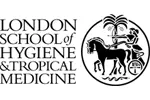The continuing production of an abundant supply of safe food produced in an environmentally sustainable manner is a major political issue for national governments and internationally within global commodity markets. Our global population is predicted to reach 9.7 billion by 2050 (United Nations, 2015), which, together with the effects of climate change, will place pressure on the agri-food industry to provide higher yields whilst also minimising land and resource use with the aim of increasing sustainability. Although global estimates vary in magnitude, it is thought approximately 25% of crops are lost to pests and diseases, such as insects, fungi and other plant pathogens (Savary et al., 2019).
The course will offer students training in techniques to facilitate crop food production, covering a broad range of topics in applied entomology, plant pathology, weed science and nematology. All students receive training in fundamental skills that will enable them to enter either a pest/disease management work environment or a research career in applied entomology, plant pathology or pest management. There is, however, considerable flexibility within the course thus enabling each student to focus on specialist subjects consistent with their interests and future career intentions.
Research projects are available in a wide range of subjects covered by the research groups within the Crop and Environment Sciences Department and choices are made in consultation with expert staff. Projects at linked research institutes in the UK and overseas are also available. The course is underpinned by an extensive programme of research at Harper Adams and long-standing collaborations with research institutes and other organisations in the UK and overseas.






